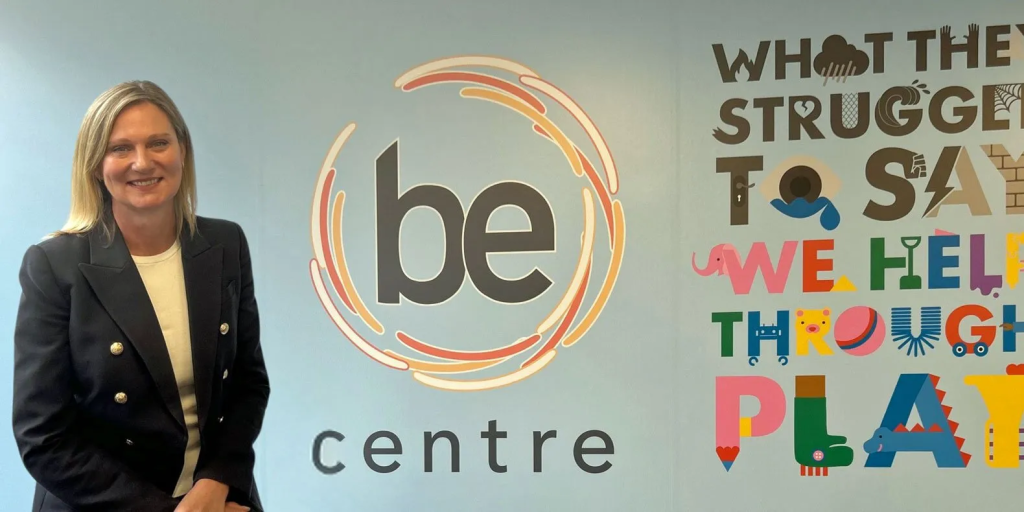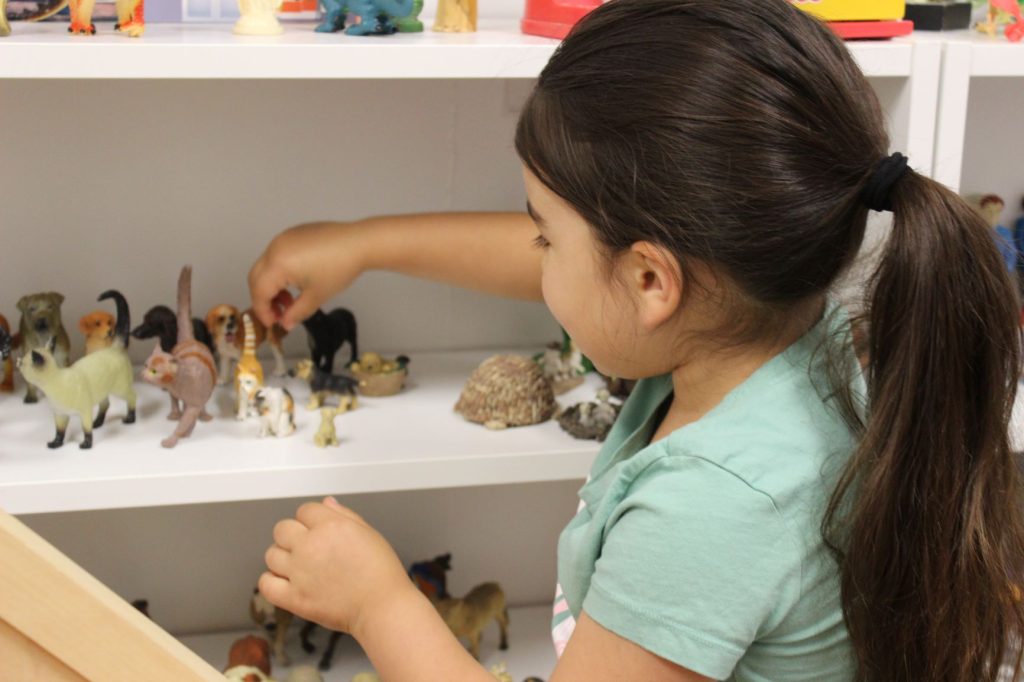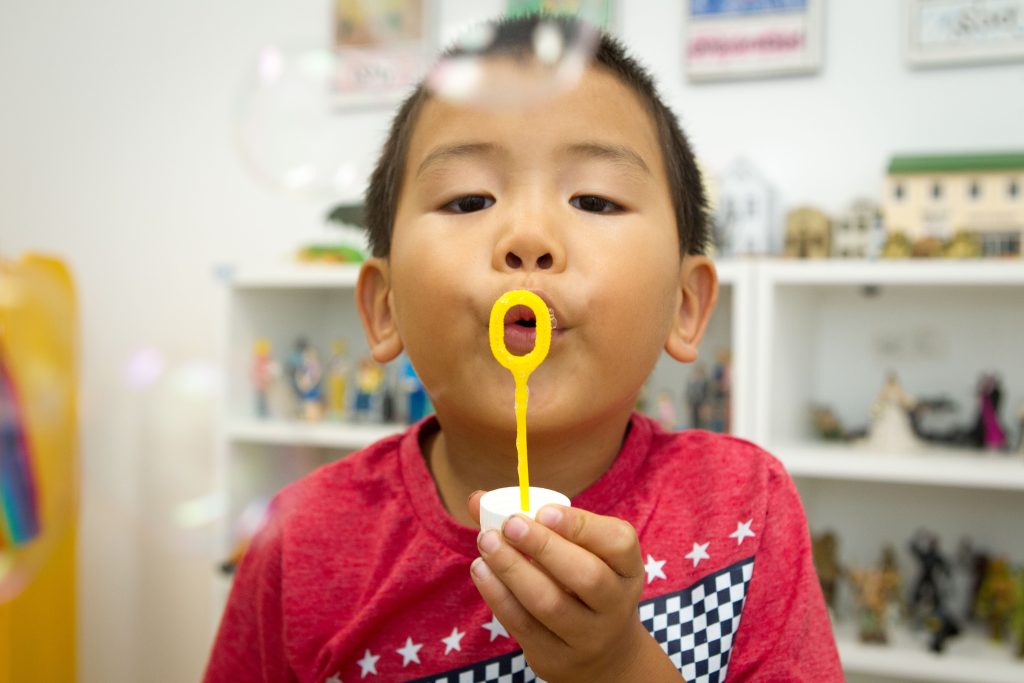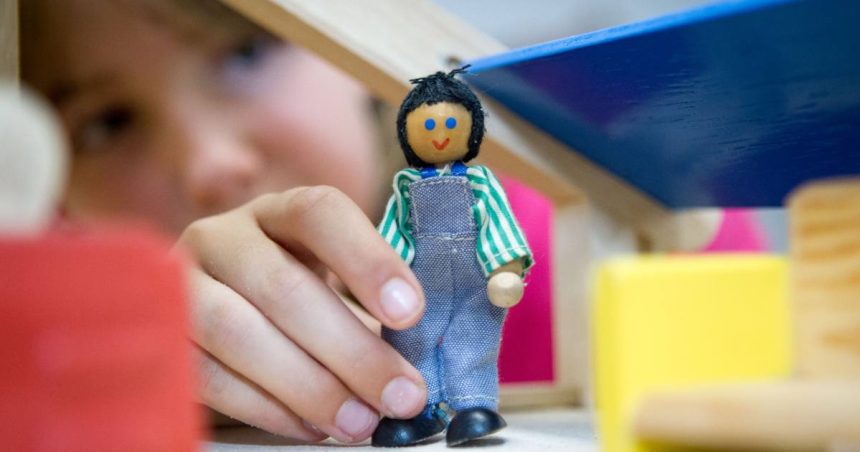New data shows a doubling in presentations of domestic violence, abuse and neglect among young children, as well as a significant increase in presentations of Attention Deficit Hyperactivity Disorder and Autism Spectrum Disorder (ADHD/ASD). The data comes from the Be Centre Foundation, underscoring the importance of early mental health interventions, and the need for targeted help for children.
Be Centre Foundation is a self-funded children’s mental health charity based on Sydney’s Northern Beaches. The charity organisation provides free services to those most disadvantaged and vulnerable so they can access help they would otherwise not be able to.
The data from its most recent impact report reveals presentations of domestic violence, abuse and neglect among young children treated at the clinic have doubled, going from three per cent in the period from April to September 2023 to more than six per cent in the period from October 2023 to March 2024. Additionally, there has been a significant increase in presentations of ADHD/ASD among young children from up to 13 per cent in the last period to more than 26 per cent in the most recent period. This includes challenges with sensory and emotional regulation.
“Children experiencing these kinds of challenges need targeted help now. These are not problems to leave unacknowledged or to drain resources attempting to treat in a way that doesn’t work,” Be Centre CEO Tania Taylor told EducationDaily.

Trialling a potential solution
Taylor believes that implementing play-based learning techniques in early childhood education curricula that address emotional and social development, and investment into providing support to those who are struggling, is an investment in the success and wellness of our country and future generations.
In response, Be Centre is currently gearing up to run a Teachers Optimal Relationship Approach (TORA) in a school in the Northern Beaches region of Sydney.
TORA, says Taylor, provides teachers, educators and other professionals working with children with the opportunity to learn discrete relational skills that promote positive social, emotional and behavioural change and ultimately improve learning environments and overall engagement in education.
This will be the first in NSW. Approximately five schools have trialled this Teachers Optimal Relationship Approach, developed by Dr Kate Renshaw in VIC.
“This will be a game-changer for us in terms of our impact in the community,” Taylor told EducationDaily.
“We will be bringing the evidence base of Play Therapy into the school environment.”
Teaching children how to express and explore emotions
Play therapy is a trauma-informed evidence-based method of therapy that optimises children’s abilities to express, explore, and resolve troubling thoughts, feelings, and experiences.
“Our research shows that children who participate in Be Centre’s Play Therapy programs experience significant improvements in their emotional well-being and relationships,” Taylor says.
“These children display fewer behavioural difficulties, which indicates better regulation and coping mechanisms. Additionally, parents report that these positive changes extend beyond the therapy sessions, having a beneficial impact at home and at school.”
The report also showed presentations of low self-esteem and bullying in up to 15 per cent of children treated at the clinic, and parental health or medical issues and addiction in around 10 per cent.
“Despite the fact that demand for our services keeps growing, the federal budget continues to overlook the mental health needs of young children,” Taylor told EducationDaily.
“However, we believe in the collective strength of our community to create positive change.”
For the month of June, all donations to the charity will have double the impact, thanks to two long-standing donors, Mark East and Margaret Hartmann. Be Centre seeks donations to continue supporting more children and families, especially those who do not have the means to support themselves.
Play therapy allows children to express, regulate, communicate, practice and master new skills as well as their emotional responses. In play therapy, children lead the session as opposed to talk therapy which is led by the therapist. In play therapy, children can play out, literally and/or metaphorically, their inner world and real-life experiences in a way that builds insight and capacity.
“While adults may use counselling to help them through difficulties, it’s not always so effective for children because their verbal and cognitive skills are not yet fully developed,” Taylor says.
Educators play a critical role
Educators play a crucial role in identifying and supporting children who may be experiencing various challenges, says Taylor.
“Behavioural issues and changes in behaviour, academic challenges, and challenges with sensory and emotional regulation are key signs educators should watch out for. It is also important to take note of social challenges, unexplained injuries, children who are wearing long sleeves or pants even in warm weather, social withdrawal and negative self-talk. We have seen a significant increase in presentations of ADHD/ASD. Signs for educators to look out for include inattention, hyperactivity, impulsivity, repetitive behaviours and communication issues.”
Taylor says there is a fairly even split of female and male children coming to Be Centre for play and creative therapy. In its most recent impact update period: 52.5 per cent of children were male and 47.5 per cent female.

Taylor says the age range of between three and 12 years old is widely recognised as the most effective period for children to benefit from play therapy, particularly if they have been impacted by trauma such as family violence.
This is for the following reasons:
- Developmental stage: Children in this age group are at a critical stage of emotional and psychological development where they can benefit most from therapeutic play. Their cognitive and emotional abilities are still developing, making them more receptive to the techniques used in Play Therapy.
- Expressive play: At these ages, children often lack the verbal skills to articulate their feelings and experiences. Play Therapy leverages their natural mode of communication—play—to help them express complex emotions and process traumatic events.
- EarlyiIntervention: Research indicates that early intervention is crucial in mitigating the long-term effects of trauma. Addressing issues at a younger age can prevent the development of more severe mental health problems later in life.
- Efficacy: Numerous studies and clinical evidence support the efficacy of Play Therapy for children aged three-12 who have experienced trauma. This age-appropriate intervention helps children process their experiences in a safe and supportive environment, promoting healing and emotional regulation.
By focusing on this age range, play therapy can provide the necessary support and tools to help children navigate and recover from the effects of trauma, fostering resilience and healthier emotional development.

Play Therapy specifically targets the child’s ‘window of tolerance,’ a concept central to trauma-informed therapy. The ‘window of tolerance’ refers to the optimal arousal zone, where an individual can effectively process information and emotions without becoming overwhelmed or shut down.
Here’s how Play Therapy aligns with this concept:
- Regulation through play: Play Therapy helps children stay within their window of tolerance by providing a safe and structured environment where they can explore their emotions at a manageable pace. The playful context naturally engages children, making it easier for them to express and regulate their feelings without becoming dysregulated.
- Trauma processing: By using play, children process traumatic experiences in a way that feels less threatening. This helps to prevent the child from becoming overwhelmed (hyperarousal) or numb (hypoarousal), keeping them within their window of tolerance.
- Skill-building: Play Therapy also involves teaching children coping and emotional regulation skills, which expand their ability to stay within their window of tolerance in the face of stress or trauma triggers. This supports long-term resilience and emotional health.
- Safe expression: Through play, children can express thoughts and emotions they might not be able to verbalise. This safe expression allows for the gradual processing of trauma, which helps in maintaining the window of tolerance.
Urgent need for better mental health funding
In some countries, there is a play therapist present in most classrooms.
In Australia, Taylor says the reality is far different.
“Counsellors working in Australian schools are completely overburdened, attempting to support an entire student body. Australia’s low rankings in classroom behaviour are a telling sign of the need for targeted, early intervention methods,” she says.
Statistics on teacher attacks in Australia reveal a concerning trend. According to a recent study, over 1,000 violent acts against students and teachers occur annually in Australian schools. Additionally, 27 per cent of students aged four to nine are bullied frequently, contributing to a hostile environment for educators and students alike. Furthermore, a study found that more than 80 per cent of Australian teachers have experienced bullying or harassment from students and parents, underscoring the widespread nature of the issue. These figures highlight the urgent need for addressing violence and creating safer school environments.”








